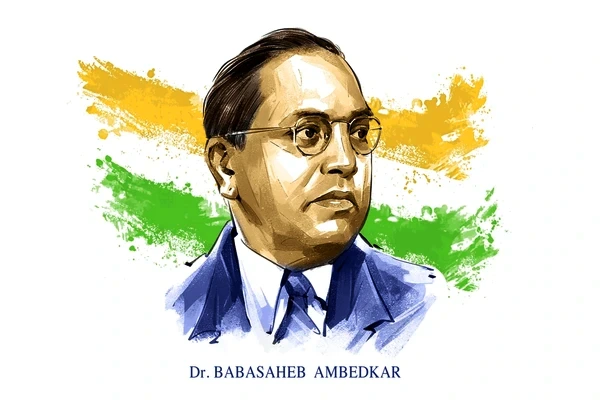Context: The death anniversary of Bhimrao Ramji Ambedkar is recognized as Mahaparinirvan Diwas every year on 6 December.
What does Parinirvana mean?
- Parinirvana represents a fundamental concept in Buddhism, signifying the attainment of nirvana or liberation during one’s lifetime and even after death.
- In Sanskrit, achieving nirvana posthumously or releasing the soul from the body after death is called Parinirvana.
About Dr. BR Ambedkar:
- Birth: April 14, 1891, in Mhow, Madhya Pradesh

Inspirational Quotes:
- I measure the progress of a community by the degree of progress that women have achieved.
- I like the religion that teaches liberty, equality and fraternity.
- If you believe in living a respectable life, you believe in self-help, which is the best help.
- So long as you do not achieve social liberty, whatever freedom the law provides is of no avail to you.
- Life should be great rather than long
|
- Father of the Indian Constitution: He was the Chairman of the Drafting Committee and is remembered as the Father of the Indian Constitution.
- Literary Contributions: Annihilation of Caste, The Problem of the Rupee: Its Origin and Its Solution”, “Thoughts on the Linguistic States”, “The Buddha and His Dhamma”
- In 1916, he wrote his thesis ‘National Dividend for India — A Historic and Analytical Study’ and received his Ph.D. Degree.
- Economic Contributions: The Central Bank was formed on the concept presented by Babasaheb to the Hilton Young Commission.
- Associated Organizations:
- Bahishkrit Hitkarini Sabha (Outcastes Welfare Association) (1923).
- Independent Labor Party (1936)
- Scheduled Castes Federation (1942)
- Social: He worked towards putting in place political safeguards for untouchables, the first of which was his presentation to the Southborough Committee that was preparing the Government of India Act 1919.
- He argued fervently for separate electorates for the ‘backward classes’,
- In 1927, a Depressed Classes Conference was organized at Mahad, located in Raigad district.
- He attempted to pass the Hindu Code Bill, to reform Hindu personal laws that dictated matters like marriage, divorce, succession and adoption.
- Constituent Assembly Membership: In 1942, he was appointed to the Executive Council of the Governor General of India as a Labour member, in 1946, he was elected to the Constituent Assembly from Bengal.
- Parliamentary Life: Ambedkar was also a nominated member of the Bombay Legislative Council from 1926-34.
- BR Ambedkar was appointed as the first Law Minister of independent India in 1947.
- In 1951, he resigned from his ministership, expressing his differences on the Kashmir issue, India’s Foreign Policy and Nehru’s Policy towards the Hindu Code Bill.
- He participated in all three Round Table Conferences.
- Honors: Dr Babasaheb Ambedkar was conferred with the title of “Bodhisattva” by the Buddhist monks at the “Jagatik Buddhism Council” in 1954 in Kathmandu, Nepal.
- Under the V.P. Singh Government, Dr. B.R. Ambedkar was honored with ‘Bharat Ratna’, the highest civilian award in 1990.
News Source: India Today
![]() 6 Dec 2023
6 Dec 2023
